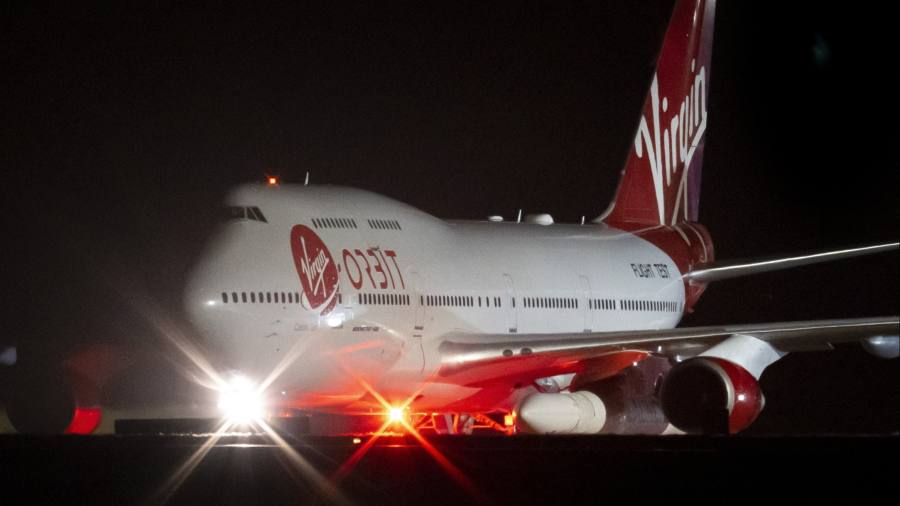Sir Richard Branson’s dream of launching rockets into space from under the wing of a converted 747 jet ended on Monday with rivals picking up Virgin Orbit’s assets for just over $36mn.
The break-up price represents barely 1 per cent of the $3.7bn value attributed to Virgin Orbit in December 2021 when the rocket launch company merged with a special purpose acquisition company, or Spac, to debut on Nasdaq. It is also a fraction of the $1bn that Branson’s Virgin Investments says it injected into the venture.
Rocket Lab, the fast-growing launch start-up with offices across the road from Virgin Orbit’s headquarters in Long Beach, California, bought the company’s 140,000 sq ft rocket factory and equipment for $16.1mn.
Virgin Orbit’s converted jet, called Cosmic Girl, was sold to the maker of the world’s biggest aircraft, Stratolaunch, for $17mn, substantially below the investment made by Virgin Orbit to buy and convert the aircraft. Stratolaunch is developing technology to test hypersonic missiles from its Roc aircraft. Before its collapse Virgin Orbit was exploring similar opportunities for Cosmic Girl.
A third space company, Launcher Inc, recently acquired by Vast, a private space station company, has bought Virgin Orbit’s launch site and lease in the Mojave desert for $2.7mn.
Including the sale of laptops and office equipment, the auction will have raised some $36.5mn for creditors. Branson’s Virgin Investment controlled roughly 75 per cent of the company.
While the aircraft and production facilities found buyers, successful sales were not completed for the intellectual property behind Virgin Orbit’s unique horizontal launch system or the half dozen LauncherOne rockets sitting on the factory floor, one person with knowledge of the auction said. However, it is unclear whether the rockets are usable on another launch platform, or the IP without the aircraft.
Virgin Orbit issued a statement on Tuesday night confirming the sale and thanking its investors and stakeholders. The group said it had been at “the vanguard of an emerging commercial launch industry” and had made “lasting contributions to the advancement of satellite launch in the United States and the United Kingdom”.
“Virgin Orbit’s legacy in the space industry will forever be remembered,” it said.
The company laid off most of its workforce and filed for Chapter 11 protection from creditors in April, with $700,000 left in the bank.
Months of crisis talks with potential investors had failed to secure new funding for the company, which had been burning close to $50mn a quarter in its race to snare a share of the rapidly growing launch market.
The auction brings to an end a five-year effort by Branson to tap the sector. Orbit was spun off in 2017 from the entrepreneur’s space tourism business Virgin Galactic and brought in other investors including Boeing and the Emirati sovereign wealth fund Mubadala. The bankruptcy filings revealed that the group had first sought a sale or new investment as early as the beginning of 2022, weeks after coming to market.
Virgin Orbit had hoped to differentiate itself by offering highly flexible and dedicated launch services from anywhere in the world with a suitable runway. Its system carried the LauncherOne rocket to 35,000ft above the Earth, from where the rocket was dispatched into space with its payload of satellites.
Potential customers included government and military, as well as commercial, clients. The company declared a backlog of contracts valued at $143mn last year. However, the filings make clear that Virgin could not match the prices of rivals, while also struggling to increase the pace of launches quickly enough to generate sustainable revenues. While six launches were planned for last year, only two were accomplished. Over the life of the company, accumulated losses came to just over £1bn, the filings showed.
This article we amended after publication to reflect the correct worth of the sum raised as a percentage of the company’s past valuation
Read the full article here




